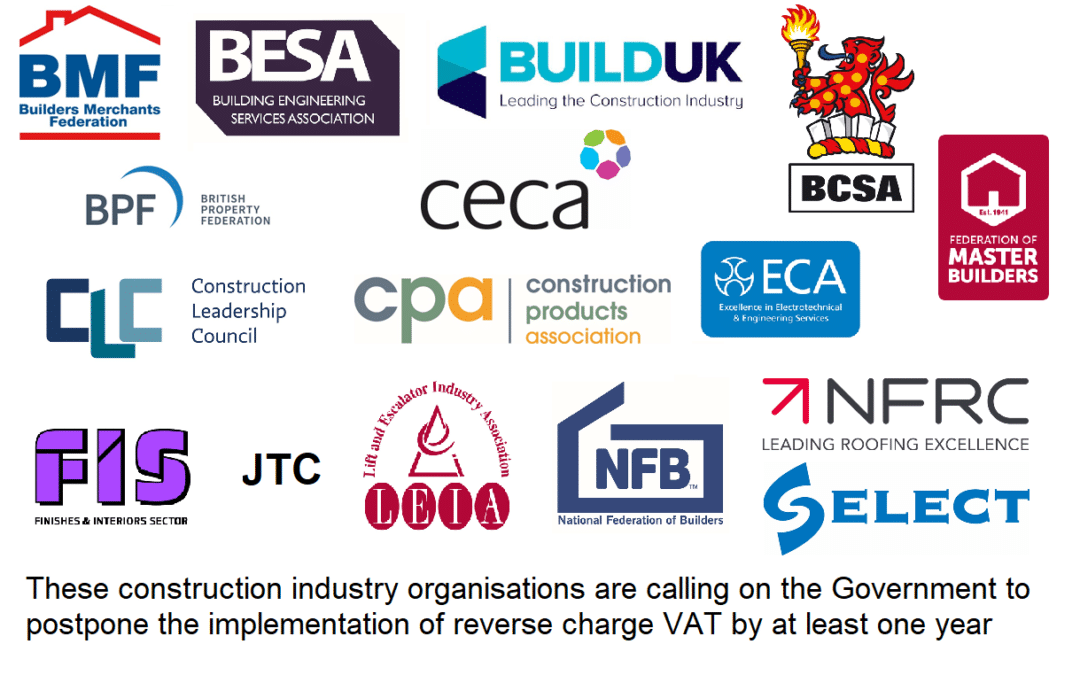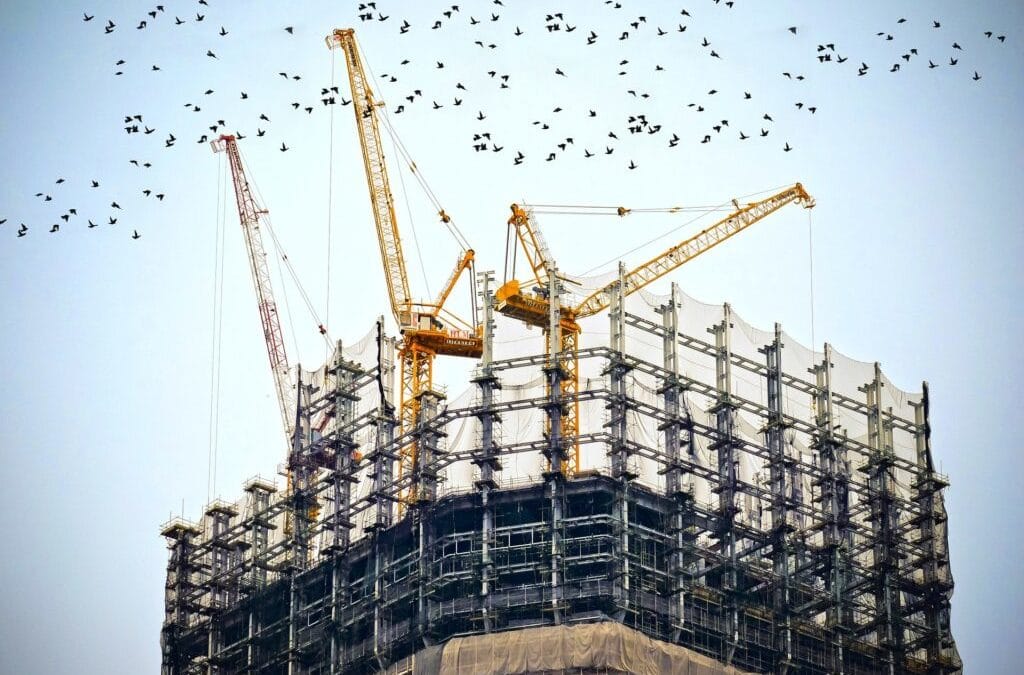
FIS joins Building chiefs to urge delay on VAT reforms
The new rules, which are being introduced to combat tax fraud, will see VAT charges on certain construction services paid directly to HMRC instead of the supplier.


Total construction output in Great Britain is expected to fall by 25% during 2020, according to the Construction Products Association. The anticipated decline in output is one of three scenarios for construction output examined by the CPA. Even under this most optimistic of scenarios, the country’s construction activity would suffer its sharpest fall ever recorded. The pause to construction work as a result of Covid-19 social distancing measures is the main cause of the fall, with 60% of planned construction output lost in April due to the measures.
Following consultation with its members, FIS has responded to the review on the use of combustible materials in cladding.
A copy of the response is available here.

FIS has teamed up with Barbour ABI to bring members deeper analysis and intelligence on the construction market. This next level of analysis will help members to forecast trends and assist in your business planning.
May’s overview of construction activity
SUMMARY
The impact of Covid-19 starts to be revealed as March GDP delivers unprecedented fall in output of 5.8% contributing to a 2% fall in Q1 GDP.

The CICV Forum, supported by FIS, has welcomed the first tentative steps announced to get the sector in Scotland back to work – but insists health and safety and collaboration must be at the heart of the phased return. The collective – which includes FIS has been working towards restart with a number of bodies, including the Construction Leadership Forum – commented after First Minister Nicola Sturgeon said Scotland will begin a process to reopen construction sites from May 28, alongside other measures.
Under the phased return to work, businesses in Scotland will be allowed to resume work on sites, based on a six-point plan which the government has developed with the industry. In her statement today, the First Minister said: “The construction industry will be able to carefully implement steps one and two of its six-step restart plan, which it has developed with us. However, let me be clear, that there must be genuine partnership with trade unions – this can only be done, if it is done safely.”
The six phases are:
The overriding focus on safety has been welcomed by the Forum, which has successfully produced a range of industry advice about correct working during course of the crisis. This is supplemented by the FIS’s own H&S Toolkit.
Commenting on the announcement from the First Minister, FIS CEO, Iain McIlwee stated “This will be welcome news to all of our members in Scotland, project restart can begin. We look forward to working with them and colleagues from the CICV Forum in understanding the phases and helping to make the transition through as clear, smooth and safe as possible. In doing this we can learn from lessons in other parts of the UK, certainly the safety first, people first approach sets the right precedent. I very much hope the spirit of collaboration continues – we need to ensure that this carries into the working practices and that the supply chain continues to pull together, works through the productivity and safety challenges and ultimately practices the principles set down in the Conflict Avoidance Pledge. We don’t just want to return we want to use the opportunity to reset the industry and leave some of the negative behaviours and practices behind us, to work together to make the Scottish Construction Industry better than it was before.”
Vaughan Hart, Managing Director of Forum member the Scottish Building Federation, said: “The shutdown in Scotland has been one of the biggest challenges the sector has ever faced and, while we wholeheartedly welcome the return to work, it must be carried out in the proper manner.
“This means that the health and safety of operatives is paramount, and the correct guidance and procedures must be adhered to at every phase of the proposed route map. The Forum has been at the forefront of helping the industry by clarifying advice and this effort will now come into its own.”
The Forum says it now plans to release more guidance to help business owners, contractors and apprentices through each stage of the phased return, including advice for construction sites, domestic work and colleges.
Alan Wilson, Chair of the CICV Forum and Managing Director of SELECT, the electrotechnical trade body for Scotland, said: “This is the news we have been waiting for and it has not come a moment too soon.
“We all understand the reasons why Scotland has been in virtual shutdown since March, and we all need to work together to assist the sector as it faces an uphill struggle to recover.”
Hew Edgar, Head of UK Government Relations and City Strategy, added “One of the most important lessons to come out of the crisis is the value of working together for mutual benefit.
“The Forum, was only created eight weeks ago, and is the perfect example of this principle, having brought together a huge range of organisations and individuals in a concerted effort to protect the industry.
“As we restart the sector, collaboration between everyone involved – clients, architects, surveyors, contractors, subcontractors and suppliers – will be of the utmost importance since many of the issues which beset the industry pre-COVID, such as late payments and retentions, will still need to be addressed.”
Download the Coronavirus (COVID-19): framework for decision making – Scotland’s route map through and out of the crisis

The UK Government, in consultation with industry, has produced guidance to help ensure workplaces in England are as safe as possible during the coronavirus pandemic. Join a free webinar, hosted by the Department of Business, Energy and Industrial Strategy, to find out more about how to make your workplace COVID-secure.
The webinars cover a range of different types of workplace settings which are allowed to be open. Many businesses operate more than one type of workplace, such as an office, factory and fleet of vehicles. You may need to use more than one of the guides/webinars as you think through what you need to do to keep people safe.